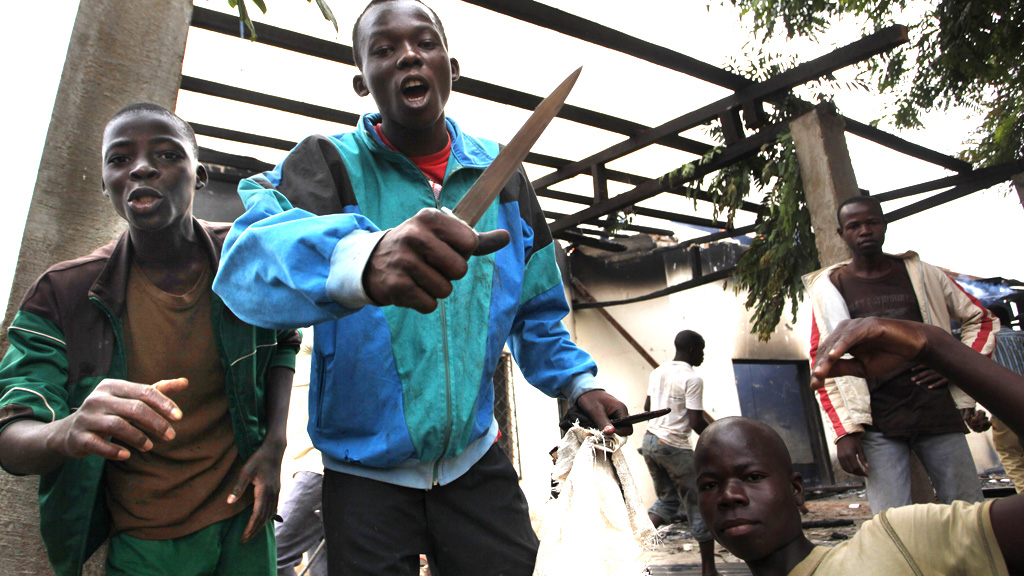Central African Republic: revenge death toll rises
Nearly 1,000 people are killed over two days in brutal reprisal attacks in the Central African Republic this month – double the UN estimate, according to Amnesty International.

Amnesty has called for investigations into war crimes in the Central African Republic after a three-day fact-finding mission that documented impromptu executions, the mutilation of bodies and savage revenge attacks by mostly ex-Muslim rebels against Christians.
Investigators found that de facto government forces, known as Seleka, killed almost 1,000 Christians – mostly men – in reprisal attacks after violence erupted in the capital Bangui on 5 December – double the UN count.
I was busy cooking outside. The anti-balaka came and attacked us Wife of a local area chief killed in recent attacks
The campaign group gave accounts of long-held neighbours killing each other, “using machetes to not make more noise when killing”.
Despite the presence of French and African military forces – which are meant to protect the civilian population – civilians “are being wilfully killed on a daily basis”, said Amnesty International, with at least 90 additional people killed since 8 December. Some have been shot, while others “have been killed by angry mobs with machetes [and] others have even been stoned”.
‘Just looking for men to kill’
The campaign group estimates that 614,000 people have been displaced across the country, and 189,000 in Bangui alone – one quarter of the city’s population.
But it also warned of the potential for human rights abuses in “dark sides” of the country outside Bangui, where there are no humanitarian groups monitoring the conflict.
Christian Mukosa, Amnesty International’s Central Africa expert, said there was “no room for doubt” that war crimes were being committed by “all parties to the conflict”, not just against the Christian-dominated ‘defence groups’, known as the ‘anti-balaka’.
We know the situation in Bangui, but we don’t know what is happening in other dark sides of that country Christian Mukosa, Amnesty International investigator
Mr Mukosa said: “Crimes that have been committed include extrajudicial executions, mutilation of bodies, intentional destruction of religious buildings such as mosques, and the forced displacement of massive numbers of people.”
“The Seleka carried out an enormous wave of retaliation killings. In carrying out those killings they made no meaningful effort…in some cases they claimed to be searching for anti-balaka forces, but they made no meaningful effort to distinguish the anti-balaka from any other Christian male.”
Several witnesses told Amnesty International the Seleka “were just looking for men to kill”.
Calls for UN intervention
Amnesty International are calling for a robust UN peacekeeping force to effectively protect the population of the Central African Republic, not only in Bangui but also in other parts of the country.
“Because in Bangui… we know the situation in Bangui, but we don’t know what is happening in other dark sides of that country, where there is no presence of humanitarians,” Mr Mukosa said.
Human Rights Watch gave a harrowing report of the machete killing of a local area chief at 5am one day.
His wife said: “I was busy cooking outside. The anti-balaka came and attacked us. They began to cut my husband with their machetes on his side and his back, and cut his throat.
“After they killed him, they set our house on fire, and threw his body on the fire, together with that of my son.
“They ordered my 13-year-old boy, Halidou Bouba, to come outside and lay down, and then cut him two times with a machete and killed him.”